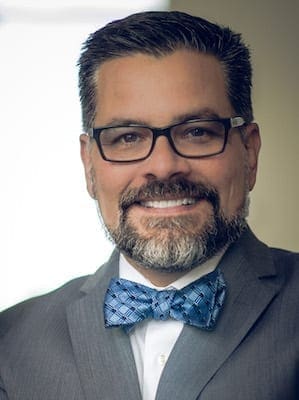My youngest son’s high school soccer team was eliminated from the Oklahoma state playoffs last weekend.
As he walked off the field that rainy night, my mind drifted back to an early Saturday morning in North Texas when he stepped onto a soccer field for the very first time. He was 5 years old.
Over the last 13 years, his mother and I had the privilege of watching him play the beautiful game.
We were present for the goals, fouls, wins, losses and yellow cards. We gathered with other parents on Saturday mornings and traveled across the country to watch the boys smile after a soccer goal.
And, of course, when they were younger, we were there with orange slices at halftime and juice boxes after the games.
When I embraced my son in the locker room after the final whistle of his last game, I could not help but think of all those times I stood beside other parents making a tunnel for the players to run through after the game.
With a final post-game hug, I hope my son knew the pride swelling inside of me, the joy of being his father, and the tears welling in my eyes listening to the final whistle on his soccer career.
When I think of my son and his fellow generation, I am inspired by their determination, commitment and creativity. When I was a teenager, I could not have kept up with their pace.
From the moment he rises in the morning to the moment his eyes close at night, my son is continuously attending class, practicing soccer, volunteering at school and studying late into the night.
While many criticize younger generations as perpetually lazy, overly sensitive and naïve children, I have come to respect them through my son and his friends.
They are hardworking young men and women who can recognize disingenuous motives and veiled hypocrisy.
There is no wonder many from their generation have left the church to find another place to bend the arc of the moral universe toward justice.
Rachel Held Evens wrote, “What millennials (and younger generations) really want from the church is not a change in style but a change in substance.”
The emerging generations are concerned about the spiritual conditions of people but from a much broader perspective.
For them, it is not all about getting one’s ticket punched to heaven; it is about caring for and loving people in a way that inspires spiritual and physical transformation.
In other words, feeding the hungry is both a spiritual and a physical act. Likewise, standing up to advocate for the immigrant or LGBTQ person fosters a spiritual and physical response that extends justice.
Evangelism is being redefined once again to encompass a holistic transformation of the individual and society.
Therefore, the church should not only start listening to the emerging generations; we should begin encouraging their leadership.
We often forget that young people started the Jesus movement in the first century.
They followed a young man of 30 who was calling for systemic transformation. According to custom, all of the disciples were most likely younger than Jesus. This is how the church began!
The next generation of the church will find leadership in these young people like my son. A segment of the church will oppose their leadership and changes.
That segment will want to stress orthodoxy and tradition, over practical theology that balances the focal points of the church.
Of course, when this happens, our new leaders will be in good company because older generations opposed Jesus and his followers as well.
Returning to my son, his favorite professional soccer team is Manchester United. Man U is one of the best clubs in the world, but they achieved that status over decades of hard work and success.
One of the legendary coaches, Sir Alex Ferguson, made a risky decision in 1992. With the club struggling, he decided to play a bunch of young players.
His risk paid off. David Beckham, Nicky Butt, Ryan Giggs, Gary Neville, Phil Neville and Paul Scholes became world-class players and won numerous trophies for their club.
When asked about the reasoning for starting so many young players that season, Sir Alex responded, “Young people will always manage to achieve the impossible – whether that is on the football field or inside a company or other big organization. If I were running a company, I would always want to listen to the thoughts of its most talented youngsters because they are the people most in touch with the realities of today and the prospects for tomorrow.”
As my son walked off the field for the final time last week, I imagined him walking into the next phase of his life.
He will be attending Dartmouth College in Hanover, New Hampshire, next fall. His older brother is at Emerson College in Boston.
My son and his fellow students will prepare themselves to become the next generation to lead the world and the church.
My son’s generation and all those surrounding them are incredibly bright, dedicated to hard work and extremely creative.
Unfortunately, the previous generations are leaving them a mess, but I am hopeful that my sons and their friends can rise high to bend the arc of the moral universe toward justice and peace.


